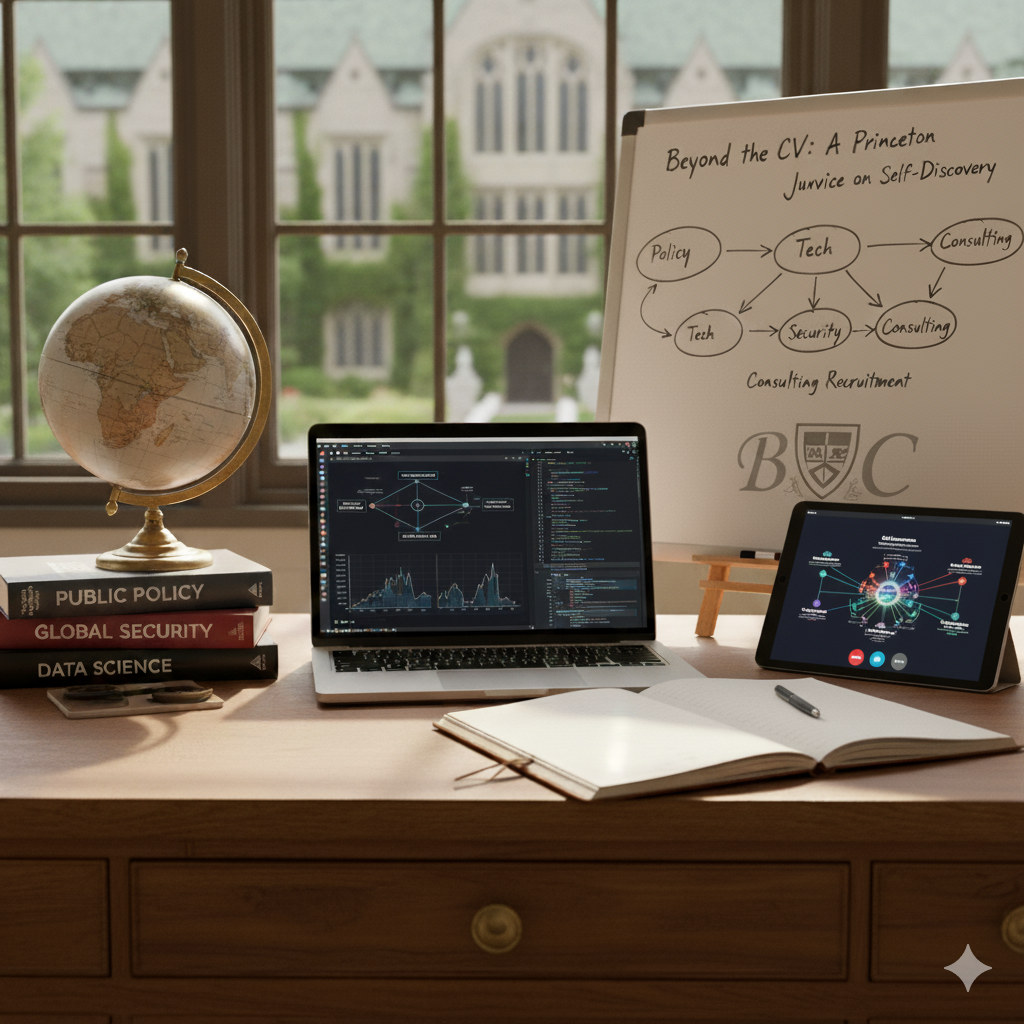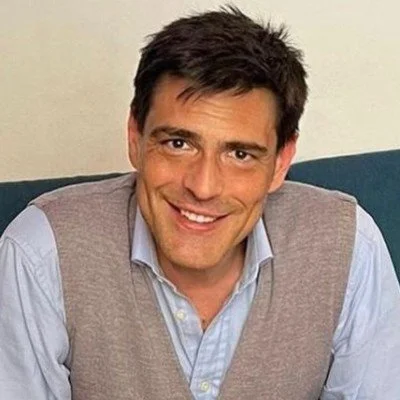Wu traced the origins of flow.studio back to when he was thirteen, hoping to make extra money during the summer. Because he was too young for a job, he started looking for opportunities online with his friend Michael Roberson, a student at Columbia. At the time, Wu was known for his hyperrealistic colored pencil illustrations. Michael discovered logo design on Reddit and convinced Wu to join him. Their first paid jobs were fifty-dollar projects. “I still remember the first time we got a three-hundred-dollar project. It was the best day of my life.”
Read MoreShe feels the best interviews feel natural and conversational rather than overly rehearsed. During virtual interviews, she advises candidates to communicate their process clearly since it can be harder to visually show work through a screen. Clarity and comfort, she says, go a long way in leaving a strong impression with your interviewer. Once an interview was over, she would remind herself, “I did my best, and I can’t change anything now.” The waiting game between interview rounds was the most difficult part for Dhyana. She had to learn to accept uncertainty as part of the process.
Read MoreThat promise of speed and scale is seductive. But at what cost? Washington Post editor Marc Fisher, speaking on another occasion, offered a quiet rebuke to such over-optimization. His vision of journalism is intensely human — rooted in messiness, empathy, and trust. Fisher recalled knocking on a widow's door to inform her of her husband's death, and how, instead of slamming the door, she invited him in for hours. “People are desperate to be heard,” he said. “Even in the worst moments of their lives, they want to tell their story.” So, AI can write prose and draft reports; what it cannot do is sit with grief.
Read MoreHe sees AI not as a replacement for human intuition but as a tool to enhance decision-making and create financial opportunities that were previously inaccessible to everyday investors. “The future of AI is about empowering people,” he said. By focusing on transparency, fostering innovation within his team, and designing products that genuinely address consumer needs, Kailas is positioning Prospero.ai as a leader in ethical and transformative financial solutions.
Read MoreEqually important is staying true to yourself. “Don’t be afraid of being different,” she says. She recalled how she embodied this ethos when she balanced her demanding career as a Wall Street banker with her passion for ballroom dancing. “I was a straight-laced banker by day and a ballroom dancer by night.”
Read MoreAt DataForge, Kosovec’s leadership philosophy is deeply rooted in future growth and a shared vision. He describes himself as a "hyper open CEO," emphasizing the importance of accessibility within the organization: "Every single person in any organization, no matter how big, should have access to every other person." He believes in demystifying leadership by reminding everyone that "everyone is just people," including successful executives who "trip and fall down the stairs" and "have their own problems."
Read MoreParker continuously emphasizes that memorization is not a substitute for comprehension. Success in professional exams requires more than rote memorization. “The questions on exams today aren’t just about recall,” he notes. “You really have to understand the content to apply it.” To ensure students understand, Parker employs real-world examples to make complex financial concepts relatable.
Read MoreIn particular, integrity is a moral that became vital to her as she made decisions in her leadership role. “When you’re in a leadership role,” Govia said, “you sometimes have to make tough decisions that people won’t like and sometimes you have to execute decisions that you won’t necessarily agree with.” Amongst the challenges that come with her role, integrity has helped her stay grounded.
Read MoreReed’s advocacy for education stems from his recognition of its transformative power. “If I could go back to my younger self, I’d emphasize the importance of understanding what it takes to live the life you want,” he said. His advice to students is simple but profound: combine a strong grounding in technology with a clear sense of purpose, and you’ll be prepared to navigate the challenges of the modern world.
Read MoreRegarding market positioning, Bovalino introduces the concepts of "Blue Sea" and "Red Sea" scenarios. The Blue Sea represents an ideal situation where a company has innovated in a unique field with no direct competitors, while the Red Sea symbolizes a highly competitive market with numerous players. Bovalino said that he aimed to lead FAAC to navigate towards “Blue Sea” opportunities through continuous innovation and user-centric design.
Read MoreTed also discussed the importance of recruiting and hiring hardworking and loyal staff: “I get some really, really great people.” He emphasized the importance of learning to cooperate effectively with others, mentioning that students will forget about their statistics classes but will remember the classes that give insight into working with people. He no longer works with people who bring down the energy of the room, and highlighted that he makes decisions constantly about whether a problem brought to him should be listened to, empathized with, or dismissed, because time is an asset and a nonrenewable resource.
Read MoreWhen it comes to networking, he encourages students to take small, consistent steps—such as meeting one finance professional each month during college—to accumulate a valuable network of contacts before even starting one’s professional journey. Marks emphasizes the power of incremental growth in skills and knowledge, stating, “If you are compounding your learning, you’re learning a little bit about something every day, [even if it’s] just a 1% change. It’s those 1% gains every day that you look back over 20 years. You’re thinking, ‘I’m really happy that I started doing that 20 years ago.’” His advice reinforces the idea that long-term success is the result of intentional and steady effort rather than overnight breakthroughs.
Read MoreAs WorkJam scaled from a startup into a global enterprise, one of Clements’ priorities was to establish core values collaboratively with employees. “Your brand is your most valuable asset besides your product,” she emphasized. These values are not just words but principles that guide decision-making. WorkJam’s team evaluates their campaigns against these values, ensuring that every email, project, and message aligns with the company’s mission.
Read MoreAI will continue to grow in various fields, including “robotics in manufacturing, predictive AI in renewable energy, drug development in life sciences, and personalized AI tutors in education.” With this, “companies must challenge themselves to envision and implement more breakthrough initiatives.” In a recent McKinsey survey, 94% of employees and 99% of C-suite leaders report having some level of familiarity with gen AI tools,” showing already the familiarity of leading business employees and leaders in AI. AI seems to have become a necessary skill in the business world and a large, inevitable part of the future of the business world.
Read More“I think it's good to do things that you're passionate about and do things that will serve you in your career, of course, but our careers will ebb and flow into different directions. They always take a different path than we anticipate a lot of times, so not getting too hung up on that, I think, is important,” he said. In terms of advice for undergraduate students, he believes that in a smaller company, someone starting their career can learn what they like.
Read MoreIyer discussed the slow adoption of artificial intelligence in financial markets, citing poor data quality and regulatory constraints as major barriers. “AI relies on predictive models, but financial institutions can’t tolerate mistakes,” he explained. “You have to prove to regulators that your model won’t fail, and it’s hard to work backwards when a false negative occurs.” Despite these challenges, Iyer expressed optimism about AI’s potential. “It will come, for sure. The industry is just figuring out how to use it in a way that meets regulatory standards.”
Read MoreThrough the efforts of God’s Love’s growing staff and identity, God’s Love We Deliver’s growth was organic; as they began to serve almost every neighborhood in the city, they gradually began to gain the attention of many. Commenting on what encourages people to get involved with the organization, Ludwigson points to three important elements: “If you want to volunteer, we need your help. If you want a great place to make a donation, I call it an investment. Come to God’s Love to Deliver. It is a very safe place to make an investment. [And] if you know someone who can benefit from our services, tell them about it.”
Read MoreCwik had a key insight regarding users’ behavior: people juggle countless apps and lists, creating inefficiency and stress. However, privacy concerns and switching costs made it difficult to unify those tools without resistance. “I didn’t know what an MVP was,” Cwik explained. “I didn’t know about switching costs or how to build a successful marketing strategy.”
Read MorePack suggests that undergraduate students should leverage what they have learned to find new opportunities, which is what Pack did when he left Bank of America after 19 years on Wall Street. Without the distractions of a larger firm, he has been able to give more attention to his clients. He places a great deal of value on his relationships with clients, relationships built on a foundation of trust. For Pack, integrity, intention, capabilities, and results are all required to form such a connection.
Read MoreDespite Roy’s turn-filled path to where he is now, one thing about his journey stays true: He has always put his passions first, whether it be what he studies, what he values, and where he works. To people hoping to join him in the finance industry, he lists three pieces of advice he hopes they can take away. The first one, aimed particularly at undergraduate students, is to “separate yourself from the crowd.” He encourages them to think about what can make them different from others with the same skill set.
Read More



















